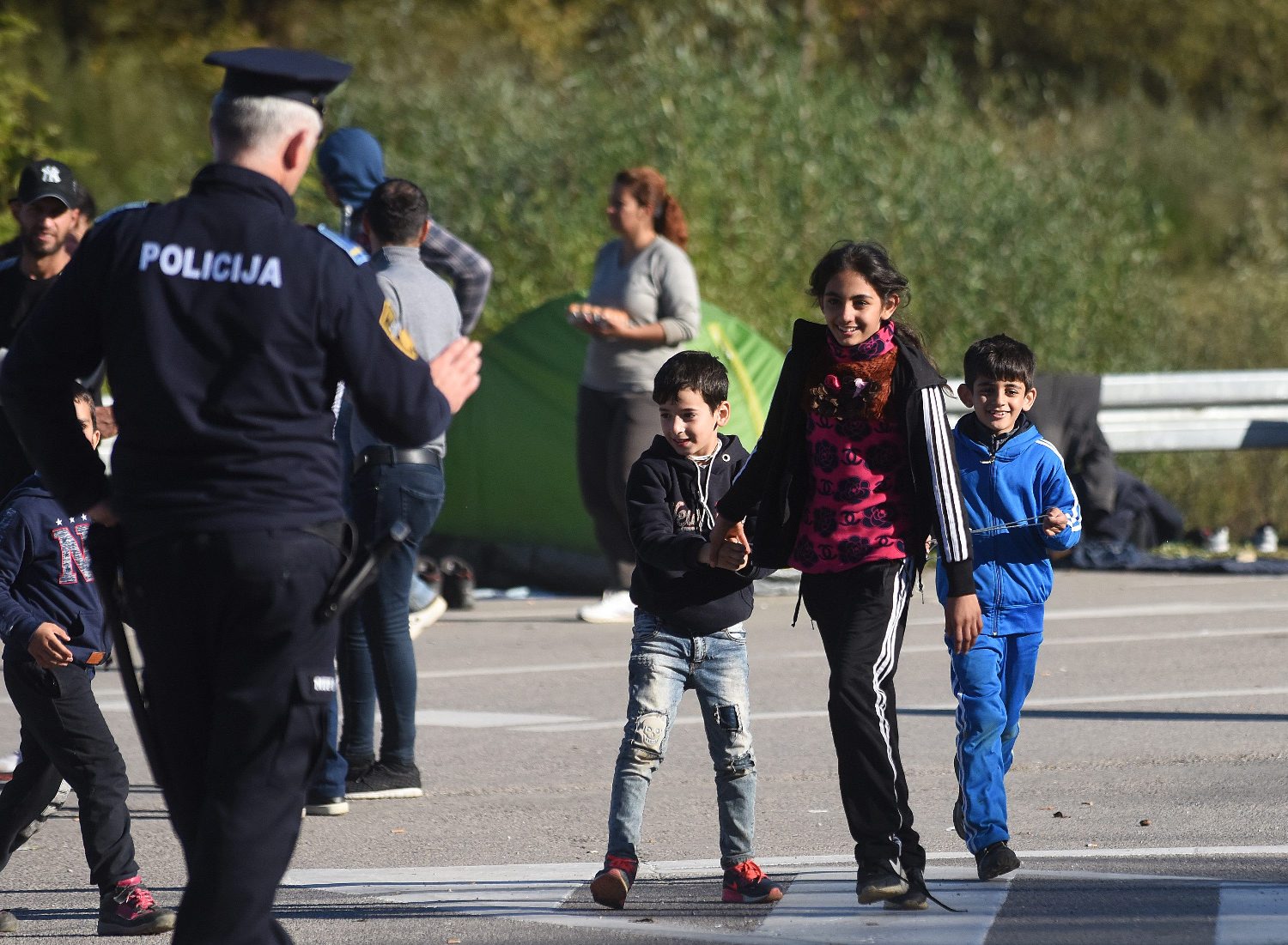
Donji Lapac police officers are monitoring the border section with B-H that migrants frequently choose to try to enter Croatia. When she arrived for an unannounced visit to the police station there last September, Ombudsman Lora Vidović did not expect to return to Zagreb empty-handed.
Several laws and international conventions give the Ombudsman, as the official authorized by the Sabor to oversee the protection of human rights, the authority to request information and documents from any body of public authority, including the police, in case of suspected violation of human rights. Those bodies and institutions are obliged to provide the requested information without hindrance or objection. Nevertheless, the only thing the officers at the Donji Lapac police station braved to tell her on that September day was a cliché: "There is an ongoing crisis with migrants and the police are acting under the law".
When she asked to see the station's records on the treatment for migrants, the Assistant Station Commander refused to give Vidović the access password for the database. It was just one in a series of events that illustrate the way the police block the Ombudsman and her co-workers from inspecting the police records in the matter of the treatment of migrants.
Rule of law
"The issue is, in fact, much broader than the treatment of migrants by the police", says Ombudsman Vidović. "It is a matter of the rule of law, and decision-making at the Police Directorate and the Ministry of Interior. Specifically, the decision to restrict our access to data is a complete disregard and circumvention of a number of Croatian laws and international conventions ratified by Croatia. It is my job and my responsibility to warn the Sabor about it." Over the past seven months, Vidović has reported to the Sabor and its bodies on the police evasion of giving access to documents and reports on treatment of migrants repeatedly and exhaustively.
Last March, following an open letter in which she asked the Office of the State Attorney (DORH) to investigate police conduct in the case of the death of Afghan girl Madina Hosseini at the Croatian-Serbian border last December, a session of the Parliamentary Domestic Policy and National Security Committee devoted to the issue was held. Vidović, UNHCR Representative for Southeast Europe Giuseppe di Caro, and representatives of various organizations engaged in aid to migrants, furnished their detail information on the illegal procedures employed by the Croatian police against migrants, as well as the police cover-up of such practice.
Everything according to law
After the session, the Committee arrived at generalized and tepid conclusions. The police continued to hide behind the phrase of "acting under the law". In October, a thematic session of the Parliamentary Human Rights Committee was held, too. This time, Ombudsman Vidović presented a still more dramatic report on her suspicions that the police were violating migrants' right to international assistance, and explicitly stated that the police were grossly violating her authority to obtain information, thus breaking laws and international conventions. She also warned of the problem in her rather sharply worded annual report for 2017.
Despite all that, the Sabor remains reluctant to initiate the mechanisms of parliamentary oversight over the police treatment of migrants and the obvious police evasion of their legal obligations towards the Ombudsman.
The body responsible for controlling the legality of police work is the Parliamentary Domestic Policy and National Security Committee. These days, Committee chairman Ranko Ostojić (Social Democrat - SDP) — a former interior minister who became a symbol of human approach of the police in the 2015 refugee crisis — is unusually quiet when it comes to suspicions of illegal police acts against migrants. We wished to learn from him whether the committee he is heading plans to initiate direct oversight of the police conduct, that is, request data and camera recordings that the police have refused to give to the Ombudsman. However, we did not get a clear and unambiguous answer.
"It is unacceptable for the police to deny the information to the Ombudsman", he told us. "It only supports suspicion that the migrants' rights are being violated. If it is not given to the Ombudsman, does it mean that it would also be denied to the National Security Committee, if requested?" -- Ostojić asked rhetorically.
"Does it mean you are preparing to initiate direct supervision of police work?" -- we asked, but did not receive a clear answer. "I have asked the Ministry of Interior and the Government to report to us on what they have done about the conclusions of the National Security Committee session held in March", said Ostojić. "I have not received their answers."
Change not expected
Other members of the Committee were even more circumspect. HNS-affiliated Stjepan Čuraj claims he is not quite familiar with the issue and says he did not attend the said session of the Committee. Most-affiliated Ines Strenja Linić also told us that she was not up to date on the topic either, and would prefer not to comment. Branimir Bunjac of Živi zid resorted to the claim that his caucus refused to communicate with Jutarnji list journalists.
"I don't know what the Sabor will do with the information I have provided", Lora Vidović says. "I can only say I do not have great expectations that anything will change."





Za sudjelovanje u komentarima je potrebna prijava, odnosno registracija ako još nemaš korisnički profil....